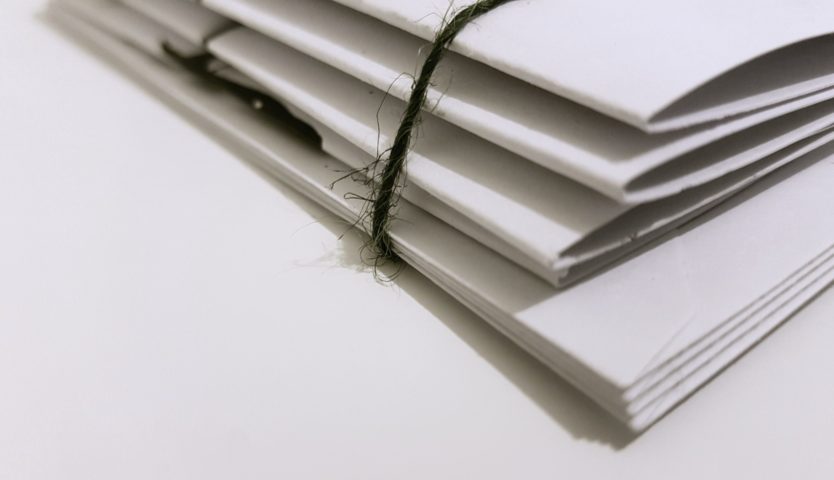How Long Should I Keep Legal Documents After a Death?
Posted by on Jul 3, 2020 in Blog, Wills & Estate
We’re all familiar with the process of grieving the passing of a friend, family member or loved one – we dress in black, attend a funeral and celebrate the life they had.
When you are an executor or designated representative, however, the process of working through someone’s death becomes more complicated.
Suddenly, you find yourself responsible for untangling this individual’s life, their possessions and their paperwork.
Not only can it be confusing to figure out which documents need to be kept, but how long do they have to be kept for?
While a professional law office can help you sort through records and determine which documents to keep, here is a guide on what should be held on to and for how long:
How Long Should Tax Returns Be Kept?
Usually the main concern when dealing with a deceased individual’s legal documents is the tax returns.
The statute of limitation for a tax audit is four years. This means that the CRA (Canada Revenue Agency) can conduct a random audit on the deceased’s tax returns for the next four years.
Despite this statute of limitations, it is recommended that you hang on to all tax records for at least six years in case any questions arise about the deceased individual’s returns.
This includes any filed files along with important tax forms and receipts.
What Other Records Should Be Kept?
There’s more to a deceased individual’s documentation than tax returns.
While it may seem overwhelming to think of all the paperwork, here are some important documents that should be kept, divided into four categories:
Legal Records
Legal records are any documents related to law, whether it be federal, provincial or local. These types of records should be kept indefinitely.
This means that any legal documentation should be passed down from beneficiary to beneficiary.
So, if you have inherited these records, they should be kept with your own vital records and passed down to your beneficiary.
These documents include the deceased’s death certificate, as well as the following records:
- Birth certificate
- Social security card
- Marriage certificate
- Divorce decrees
- Legal will
- Death certificate
Any of these records may be required to manage affairs related to the estate. Especially evidence of marriage, prenuptial agreements and/or divorce – without them, you may find yourself dealing with estate disputes.
If nothing else, you may want to keep these important documents for the sake of family history or Genealogy.
Financial Documents
We’ve already talked about the importance of keeping the deceased’s tax returns, but there are other financial documents that should be kept as well.
These documents should be preserved for at least three years after any necessary estate taxes are filed.
Important financial documents include:
- Account statements
- Receipts
- Pay stubs
- Retirement benefit and distribution statements
- Tax returns
During a tax return, or even an audit, these documents may be requested – so it is best to keep them on hand.
Medical Documents
Medical documents and information should be held onto for at least ten years.
However, privacy laws protect an individual’s medical records, so you would have to be a designated representative or legal executor of the person’s estate to access them.
Examples of important medical documentation include:
- Health insurance cards
- Medical tests
- Medical history
- Prescriptions
- Hospital discharge papers
These records will help to clarify the type of health coverage the deceased had as well as any conditions they suffered from (or did not suffer from).
This information is also useful since it can help family members determine if any of these conditions are hereditary.
Also, you may want to have documentation related to the results of hospital visits to keep track of visits as well as treatments administered.
Other Important Documents
You may find yourself sorting through a pile of miscellaneous documents after an individual passes away.
How do you know what to keep and what to throw away?
Before you toss aside anything that is not legal, financial or medical, consider keeping the following records:
- Diplomas
- Home and car insurance
- Rental agreements
If you and the deceased shared a home, you can continue to open their mail and manage the correspondence. You may want to consider contacting the sender to notify them of the individual’s death.
If you did not live with the deceased, you will need to provide proof that you’re the executor of their estate before you can make any changes to their postal service.
Apart from mail, you should strive to keep these documents for at least 10 years – especially the home and car insurance, which can help with properly managing the estate.
Otherwise, diplomas are typically not required for anything legally, but may have sentimental value.
Organizing Important Documents
Sifting through a deceased person’s belongings can be overwhelming, especially when dealing with paperwork.
To make the task less stressful, and more organized, invest in an accordion file folder to separate the paperwork by year.
Be sure to label everything and check the folder every year to see what information no longer needs to be kept.
If you are dealing with the paperwork of a deceased family member, friend or loved one, don’t hesitate to contact our professional lawyers at Heritage Law.
We can take the time to help you make sense of the paperwork and ensure that the necessary documents are kept safe and sound.





